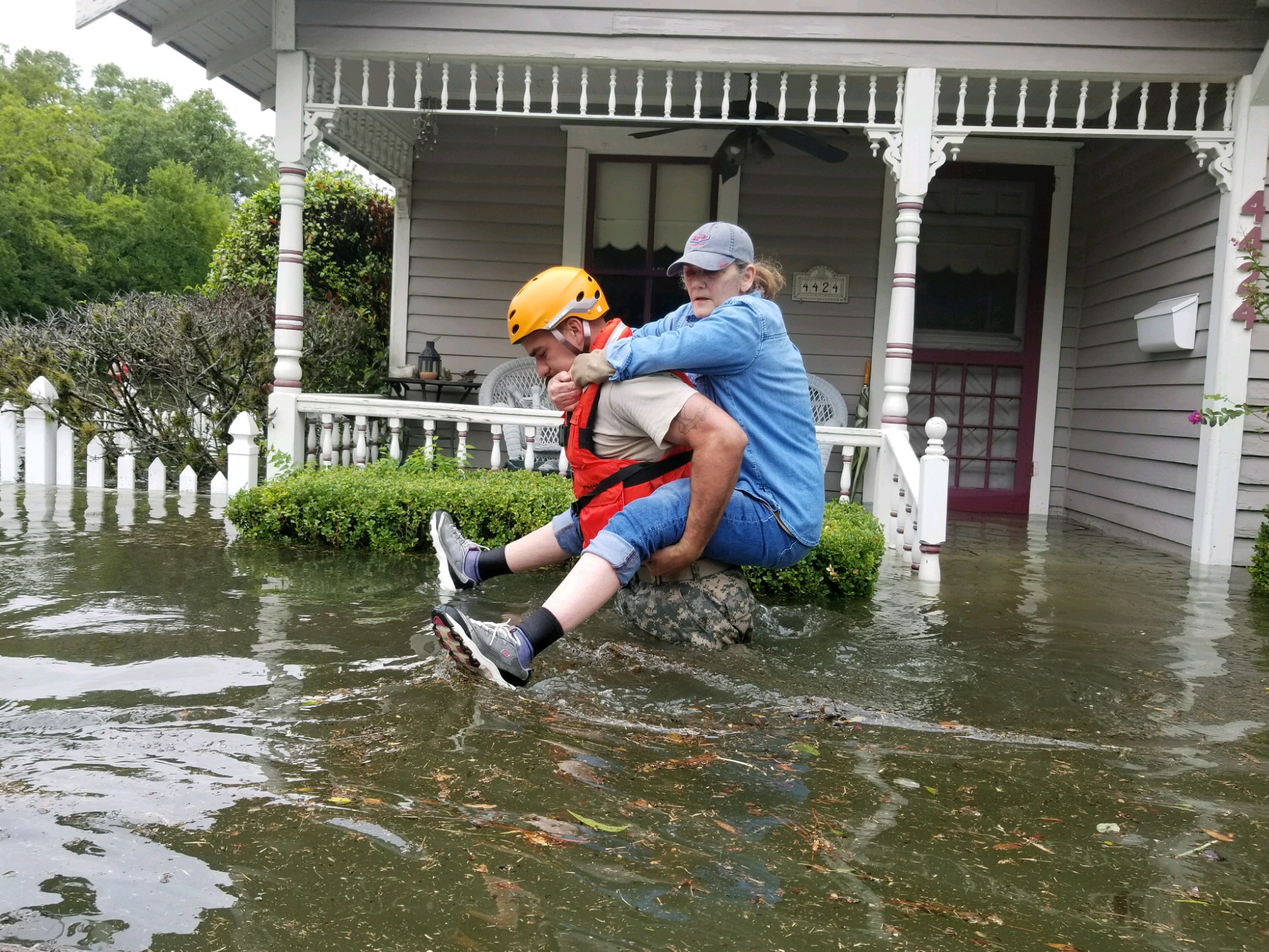Shocked experts have concluded in a new report that, after a year of extreme weather events, life on Earth is “under siege.”
The report, cosigned by more than 15,000 scientists, serves as an update to the 2019 World Scientists Warning of a Climate Emergency report, which classed climate change as an “emergency,” saying it would lead to “untold human suffering.”
In the new report, scientists state they are “shocked by the ferocity” of the extreme weather events seen so far in 2023. In the United States, these have included extremely heavy rainfall and atmospheric rivers that battered the west of the nation, causing severe flooding. At least 22 people died and approximately $3.5 billion of damage was caused. Scientists note that climate change may be making such severe floods more common.
The study also notes the devastating wildfires that swept through Hawaii earlier this year, noting that on Maui island more than 100 people lost their lives, although the death toll from the wildfires was revised down to 97 from 115 by authorities in September. Maui Police Chief John Pelletier added during a press briefing that the number of those who remain unaccounted for was 31, down from 66.
Nevertheless, the report says that as climate change has made rain less common, and led to increased temperatures in the region, wildfires may be becoming more common.
“To address climate change, rapid reductions in fossil fuel emissions must be a top priority. We therefore urge world leaders to phase out fossil fuel subsidies and support coal elimination and fossil fuel non-proliferation treaties,” William Ripple, a professor at Oregon State University College of Forestry, and one of the authors of the report, told Newsweek.
“In addition, we need policies to protect and restore forests, which sequester carbon. Lastly, given the catastrophic climate impacts we are now seeing, funding for equitable climate adaptations is needed to protect infrastructure and minimize loss of life,” he said.
The authors of the report suggest that an average global surface temperature recorded in July may have been the highest seen on Earth in 100,000 years.
Of 35 “vital signs” of climate change effects, the report notes that 20 are now “record extremes” and this has been “tragically reflected” in the amount of human suffering across the world, the scientists write.
One major concern listed in the report are fossil fuel subsidies, which doubled to over $1 trillion between 2021 and 2022.
Wildfires in Canada—which were particularly bad this year, with smoke blanketing areas of the East Coast—also pumped 1 gigaton of carbon into the atmosphere.
Climate change is causing some serious concerns regarding resources and food security, the report says. In 2022, 735 million people faced chronic hunger. This marks an increase of 122 million since 2019.
“Since the publication of our first climate report in 2019, we have seen many important planetary vital signs like carbon dioxide levels continue to worsen,” Ripple said. “We have been particularly troubled by the severity of recent climate-related disasters, including massive floods, heat waves, and storms. We are concerned that policymakers are failing to adequately address the climate emergency. We are also acquiring a greater understanding of dangerous climate feedback loops, potential tipping points that may make the climate crisis much worse.”
This most recent report is just the latest in a series that are emerging about the effects of climate change.
A study published earlier in October warned that if climate change continues to worsen, certain areas—such as Middle America—could soon be too hot for humans to live in.
The section of the United States from Florida to New York and Houston to Chicago could get so hot that humans would not be able to withstand the heat if the planet continues to warm past 3 degrees Celsius above pre-industrial levels, according to the study.
Various other reports have also tracked how extreme weather events are increasing because of climate change.
Another recent study found that hurricanes in the Atlantic are intensifying faster than ever before. Its author said her findings should serve as an “urgent warning” to people to change their behavior, as a warming ocean surface may be contributing to these strong hurricanes.
“There are lots of small-scale actions people can take to help mitigate climate change, such as using more energy efficient appliances, opting for more sustainable diet choices, and making use of public transportation, if possible,” Ripple said. “Since this is a systemic, global crisis, we think a top priority for individuals should be voting for, supporting, and holding accountable leaders who are committed to addressing climate change.”
Do you have a tip on a science story that Newsweek should be covering? Do you have a question about climate change? Let us know via science@newsweek.com.

